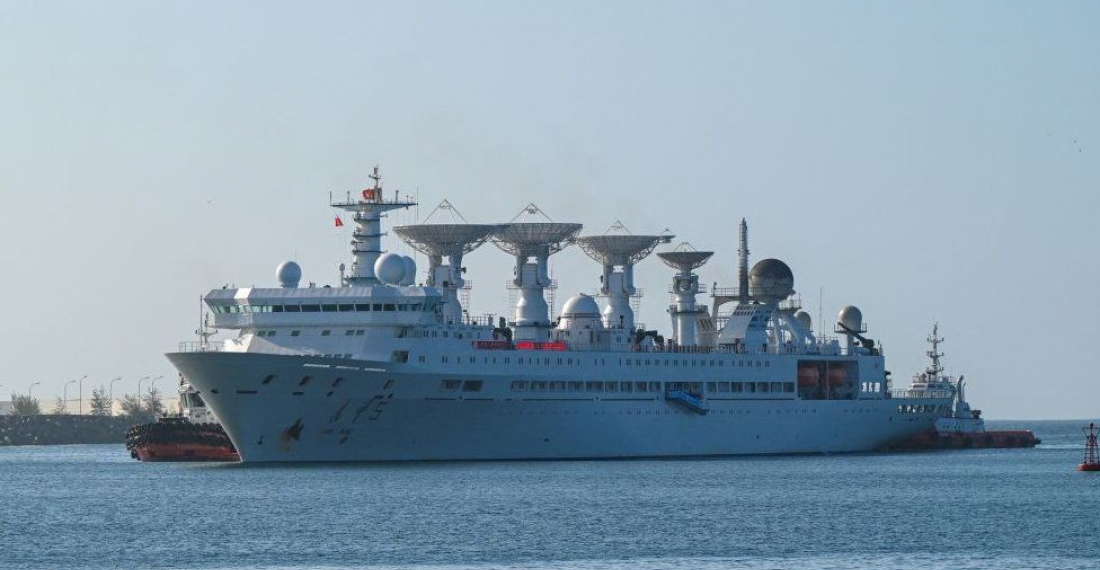China’s satellite tracking vessel Yuan Wang 5 arrived at Sri Lanka’s southern Hambantota Port, on Tuesday (16 August) despite the concerns of both India and the United States.
The vessel was earlier scheduled to dock at the Chinese managed Hambantota port on August 11 for “replenishment”, according to officials. Its arrival was postponed by five days after Sri Lankan authorities made a request to China, reportedly citing Indian security concerns.
Sri Lanka's Foreign Ministry said the ship will be allowed to remain in the Chinese-run port until 22 August.
Foreign security analysts quoted by Reuters describe the Yuan Wang 5 as one of China's latest generation space-tracking ships, used to monitor satellite, rocket and intercontinental ballistic missile launches.
Several Indian media reports described it as a "dual-use spy ship". Shipping analytics websites call it a research and survey vessel.
One report by Indian news site NDTV said the government in Delhi was concerned about "the possibility of the ship's tracking systems attempting to snoop on Indian installations while on its way to Sri Lanka".
Earlier in July, an Indian foreign ministry spokesman said the government was monitoring the ship's planned visit, adding that Delhi would protect its security and economic interests.
China has slammed New Delhi’s apprehensions as “unjustified” and “morally irresponsible”, and “urged” New Delhi to “not disturb normal exchanges” between China and Sri Lanka. New Delhi “rejected insinuations” that Sri Lanka was pressured.
Although deferred by a few days the vessel’s arrival, and stay for nearly a week at the southern port, points to Sri Lanka’s strong ties with China, even as Colombo finds itself on a sticky diplomatic wicket, managing the competing geostrategic interests of India and China in the island nation. Colombo recently said it firmly backs the ‘One China Policy’, in the wake of U. S.-China tensions in Taiwan.
Five senior Sri Lankan MPs, including some who identify as “independent” in Parliament, along with Chinese officials, were present at a ceremonial welcome to the vessel on Tuesday morning. “Long live China and Sri Lanka friendship,” a red banner held by the crew on the upper deck of the vessel read.
The development comes a day after India gifted a Dornier marine surveillance aircraft to Sri Lanka to enhance its “security capabilities”.







